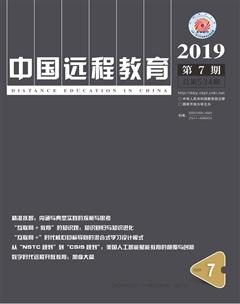英文摘要
Intellectual poverty alleviation: connotation, good practices and future actions
Xinglong Zhao
Intellectual poverty alleviation has entered a critical stage in the field of education. Research has focused on over-scattered allocation of resources, insufficiency of family education integration, and inadequacy of overall student qualities. Based on the requirement and demand as well as talent training for poverty alleviation, this article set out to identify and analyze influencing factors and solutions in order to enable young children in poverty-stricken areas to receive a good education, enhance their well-rounded development and foster virtue through education in the new era. In line with the combination of problem-orientation and goal-orientation, the article summarizes and elaborates nine types of good practices in intellectual poverty alleviation at three levels: showing gratitude and setting aspirations, engaging learning and effective teaching, and openness and connectivity. It is argued that intellectual poverty alleviation is more than equal access to education and five transformations are proposed to realize its full potential. Implications are also discussed against the backdrop of ICT-enhanced development of regional education.
Keywords: intellectual poverty alleviation; overall student development; poverty alleviation through education; supply-side structural reform of education; ICT in regional education; education equity
Conceptualizing knowledge in “Internet + education”: the nature of knowledge and knowledge evolution
Li Chen, Hang Lu and Qinhua Zheng
The Internet has changed the organization system and service system of education and is changing the concept of knowledge as well as its mode of production and communication, driving educational reform. This article systematically elaborates the motivation and law of “Internet + education” knowledge change, covering five aspects. First, the motivation of re-conceptualizing knowledge is an essential characteristic of the Internet as a space of information. Second, knowledge returns to its traditional concept of mankinds overall wisdom. Third, in the Internet environment, knowledge is produced and stored through online network, its standards are personalized, and it is presented in multimodal and fragmented manners. Fourth, in the Internet environment, knowledge generation and evolution are problem-driven, with such characteristics as distributed production, random network evolution, simultaneous production and transmission, and non-linearity. Fifth, it is of immediate necessity to update the concept of knowledge. The article concludes with implications for practice.
Keywords: Internet plus education; concept of knowledge; knowledge production; knowledge evolution; non-consensus views; collective intelligence collaboration; collaborative production networking; Massive Open Online Course
Towards a model of core goal-oriented blended learning design in the Internet Plus age
Xiaoying Feng and Ruixue Wang
Instructional design is key to successful implementation of blended instruction. Focusing on the why and how of blended instruction, this study attempts to identify the fundamental goals and value orientation of blended learning design and its design principles. It then develops a model of core goal-oriented blended learning design. It is argued that blended learning design should take competency and interest development as its value orientation with “three transformations” and “three keywords” as its design principles. The proposed model encompasses three key stages (core goal design, learning experience design and learning scaffolding design) and ten steps. It is believed that this model can serve as a theoretical framework and a set of comprehensive, feasible guidelines for practitioners and researchers.
Keywords: learning design; instructional design; design model; blended instruction; blended learning; Internet Plus; core goal; learning experience; learning scaffolding
Towards an evaluation model of online learning behavior and learning effectiveness for MOOCAP learners
Xinyi Shen, Jianwei Wu, Yanxia Zhang, Ying Li and Yuchun Ma
MOOCAP is a combination of Massive open Online Course and Chinese Advanced Placement. Utilizing MOOCAP learners online learning behavior data, this study develops an evaluation model of online learning behavior and learning effectiveness for MOOCAP learners by using Delphi method, expert sort method, expert workshop and other research methods. Student achievements tend to be based on exam results or a single learning behavior. In contrast, the new model can be used for a comprehensive and systemic evaluation of student achievements, drawing on data to support individualized student development and adapting teaching strategies accordingly.
Keywords: Massive Open Online Course; Chinese Advanced Placement; MOOCAP; educational equity; educational reform; curriculum reform; online learning; learning evaluation
Open and distance education in Canada in a digital age
Tony Bates
Because of its geography, distance education has a long history in Canada. This article looks at the range and type of institutions that currently offer open and distance education, how quality in DE course design is achieved, and how Canada resembles and also differs from the USA in this field. The article analyses the numerous innovations in distance education and online learning in Canada, and ends with a discussion of the challenges and opportunities that Canada faces in this area.
Keywords: open and distance education; online learning; higher education; quality assurance; innovation; Canada
(英文目次、摘要譯者:肖俊洪)

